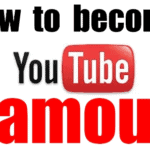In an era dominated by fleeting moments and quick-scroll feeds, TikTok has emerged as the neon-lit playground for the digital age, captivating millions with its endless stream of creativity, humor, and sheer unpredictability. It’s the modern-day agora where trends are born, voices are amplified, and brands can skyrocket to viral fame overnight. Yet, amidst this bustling digital bazaar, businesses and creators alike find themselves pondering a crucial question: “How much do TikTok ads cost?”
This seemingly simple inquiry opens the door to the intricate world of TikTok advertising, a realm where the art of engagement dances hand in hand with the science of algorithmic precision. As we embark on this exploration, we’ll navigate the various alleys of TikTok’s advertising landscape, uncovering the factors that influence cost, the different ad formats available, and the strategies that can make your investment truly count. Whether you’re a small business owner taking your first tentative steps onto the platform or a seasoned marketer aiming to harness TikTok’s full viral potential, understanding the cost of TikTok ads is your key to unlocking its vast, dynamic audience. So, let’s dive into the enigmatic world of TikTok advertising costs, where the only limit is your creativity, and the potential for impact is as boundless as the content that fills its feeds.
Table of Contents
- Unveiling the Cost Structure of TikTok Ads
- Diving Deep into TikTok Ad Types and Their Impact on Budget
- Maximizing ROI: Strategies for Cost-Effective TikTok Advertising
- Navigating the TikTok Ads Manager: A Beginner’s Guide
- Wrapping Up

Unveiling the Cost Structure of TikTok Ads
When delving into the financial maze of promoting content on the currently booming platform, TikTok, marketers and advertisers face the quintessential question: How does one efficiently budget for campaigns? The answer isn’t as straightforward as one might hope, primarily because the cost hinges on a multitude of factors including ad format, bidding model, and competition within your target audience. However, understanding the basic framework can shine some light on what to anticipate.
Primarily, there are various ad formats available on TikTok, each with its unique cost implications:
– In-Feed Ads: These seamlessly integrate into the user’s For You Page (FYP), resembling regular content. Advertisers can opt for a cost-per-click (CPC), cost-per-impression (CPM), or cost-per-view (CPV) model. Prices fluctuate based on the audience’s competitiveness and the ad’s quality.
– Branded Hashtag Challenges: An innovative way to engage with users, these challenges can virally propel brand visibility. Due to their high engagement levels, they come with a heftier price tag, often requiring a substantial minimum spend.
– TopView Ads: These premium slots capture attention right away as they’re the first thing a user sees upon opening the app. Given their prime positioning, they command a premium price.
– Branded Effects: Offering an interactive experience, these customizable AR filters and effects can lead to deeper engagement, priced on a campaign basis.
The bidding models further add layers to the cost structure. Advertisers can choose between a CPC, CPM, or CPV model depending on their campaign objectives. While a CPC model may be ideal for driving website traffic, a CPM model could better serve brand awareness goals. It’s also essential to consider the ever-changing TikTok ad auction system, where bid amounts and ad relevance determine your ad’s visibility. Simplifying this complexity, the cost also heavily depends on your target demographic’s demand and the level of competition bidding for the same audience. Thus, while setting foot into TikTok advertising, prepare for a dynamic pricing landscape that requires constant adjustment and optimization for cost efficiency.
Diving Deep into TikTok Ad Types and Their Impact on Budget
Navigating the bustling digital marketplaces of TikTok means understanding the diverse advertising formats available and how they can dent your marketing budget in unique ways. The platform offers a smorgasbord of ad types, each with its own engagement levers and financial implications. For instance, there’s the unforgettable **In-Feed Ads**, akin to scrolling through your TikTok feed and encountering a friend’s video, except this friend is a brand enticing you with its offerings. These native, seamless ads can be a cost-effective entry point for businesses, given their pay-per-click model. Then we have the showstoppers: **Branded Hashtag Challenges** and **Branded Effects**, letting brands sponsor challenges or create custom filters/effects. While these tend to command a premium due to their potential for viral success and higher engagement rates, they offer unparalleled opportunities for brand interaction and creativity.
Diving deeper, two standout ad formats particularly influence marketing strategies and budget considerations:
- TopView Ads: An exclusive spot that guarantees brand visibility by being the first thing users see upon opening TikTok. This premium placement, with its up to 60-second full-screen video, comes with a higher price tag but offers substantial user engagement and brand awareness potential.
- Spark Ads: A format that allows businesses to amplify existing organic content or partner with creators to use their content as part of the brand’s advertisements. This approach can yield significant engagement at a potentially lower cost since it leverages the authenticity and creativity of organic content that resonates well with the TikTok community.
Each of these formats has its own charm and challenge, requiring brands to meticulously balance their aspirations for virality, community engagement, and, most critically, their budget. Understanding the peculiarities of each ad type and how it aligns with your marketing objectives is the first step toward crafting a TikTok advertising campaign that not only captivates but also converts, without breaking the bank.
Maximizing ROI: Strategies for Cost-Effective TikTok Advertising
In the dynamic landscape of TikTok advertising, the pursuit of a high Return on Investment (ROI) hinges on deploying cost-effective strategies. Navigating the advertising costs on TikTok requires an understanding of several crucial elements that determine your expenses. Notably, the type of ad format—ranging from **In-Feed Ads** to more immersive options like **Brand Takeover** or **Hashtag Challenges**—plays a significant role in shaping your budget. Furthermore, TikTok employs a bidding system for ad placements, meaning your costs can fluctuate based on competition and target audience specifics. Embracing a strategic approach involves not just selecting the right ad format but also optimizing your bid strategy to secure a favorable balance between cost and visibility.
Unveiling the layers of a cost-effective TikTok advertising campaign involves more than just understanding the mechanics of ad costs. To truly maximize ROI, advertisers must weave insightful strategies into their campaigns:
– **Optimize for Engagement:** High engagement rates can significantly amplify your ad’s reach due to TikTok’s algorithmic preferences, thus providing better ROI for lower costs. Crafting content that resonates with your audience, stimulates interaction, and encourages shares can elevate your ad performance without escalating expenses.
– **Leverage User-Generated Content (UGC):** UGC not only augments authenticity but also cuts down on production costs. Encouraging and curating content from your community can lead to a rich repository of relatable and compelling ad materials, naturally boosting your campaign’s effectiveness and engagement.
By thoughtfully selecting ad formats and employing a combined strategy of engagement optimization and UGC leverage, businesses can achieve a commendable ROI on TikTok, even with budgetary constraints. Transitioning from traditional advertising approaches to these cost-effective tactics can redefine the success metrics of your digital marketing endeavors on TikTok.
Navigating the TikTok Ads Manager: A Beginner’s Guide
Embarking on a journey through the vibrant world of TikTok advertising begins with understanding the diverse ad formats available, each with its pricing nuances. First on the list are the **In-Feed Ads**, akin to native content gently woven into users’ scrolls; here, you bid on a cost-per-click (CPC) or cost-per-thousand-impressions (CPM) basis. Next, we have the **Brand Takeovers**, where creativity can explode in a 3-5 seconds spectacle, capturing full attention upon app opening. Unlike In-Feed Ads, these are bought on a fixed price per day model. **TopView Ads** elevate this experience, allowing up to 60 seconds of full-screen glory, priced similarly to Brand Takeovers but offering extended engagement. Diving deeper, **Branded Hashtag Challenges** invite the community to participate, creating a viral wave, priced on a package basis including promotion across various placements. Lastly, **Branded Effects** let brands carve a niche within user content through custom filters, stickers, and effects, again, offering a package-based cost. Each format beckons with its unique charm, demanding a tailored strategy to leverage its full potential economically.
Navigating through TikTok Ads Manager to configure your campaign finances involves a couple of key decisions. Begin by setting a **Campaign Objective** that aligns with your brand’s goals, be it driving traffic to your website, generating leads, or boosting engagement on your app. This crucial step influences your subsequent budgeting and bidding strategy. Moving on, you’ll encounter the choice between a daily or total campaign budget, offering flexibility in controlling ad spend. For most ad formats, TikTok requires a minimum daily spend, ensuring your ad receives adequate visibility. When it comes to bidding, options such as **CPC**, **CPM**, and **oCPM** (optimized CPM) present themselves, each serving different performance goals and audience reach objectives. Here lies the art of trial and error, seasoned with data-driven adjustments, guiding towards an optimized cost-effective campaign. Remember, while TikTok’s auction-based model promises competitive pricing, being mindful of peak advertising seasons and audience targeting can significantly impact your final ad spend.
Wrapping Up
In the bustling digital square of today, where creativity meets commerce under the vibrant neon lights of TikTok, understanding the investment in this dynamic marketplace can be both an exciting adventure and a daunting task. As we pull down the curtain on our exploration of TikTok ads’ costs, it’s clear that the platform offers a kaleidoscope of opportunities for brands willing to dance to its rhythm.
Embarking on this journey requires not just a budget but a flair for creativity, a pulse on trends, and a willingness to experiment. The costs we’ve navigated through are but stepping stones in crafting campaigns that resonate, engage, and ultimately convert. Whether you’re a fledgling startup taking your first steps into the digital unknown or a seasoned brand looking to leap into new, trendier waters, TikTok presents a stage waiting for your story.
As we part ways, remember this: the value of your venture into TikTok advertising doesn’t solely hinge on the dollars and cents but in the connection you forge with your audience. In this ever-evolving dance floor of digital content, your next move could be the one that captures hearts, ignites trends, and propels your brand into the spotlight. So, take a deep breath, set your budget, and let your creativity flow – the TikTok stage is yours to conquer.
Chris Taylor
I'm Chris Taylor, an enthusiastic Content Manager and Copywriter specializing in social media and emerging technologies. My talent lies in creating engaging and relatable content that captures the audience's attention and encourages interaction.
As an expert in social media, I'm always up-to-date with the newest trends, using them to develop content that's not just educational but also enjoyable and widely shareable. Recognizing the power of storytelling in brand development, I'm committed to crafting stories that forge a personal connection with audiences. My combination of attention to detail and creative flair ensures that every content I produce resonates deeply with its intended audience.




